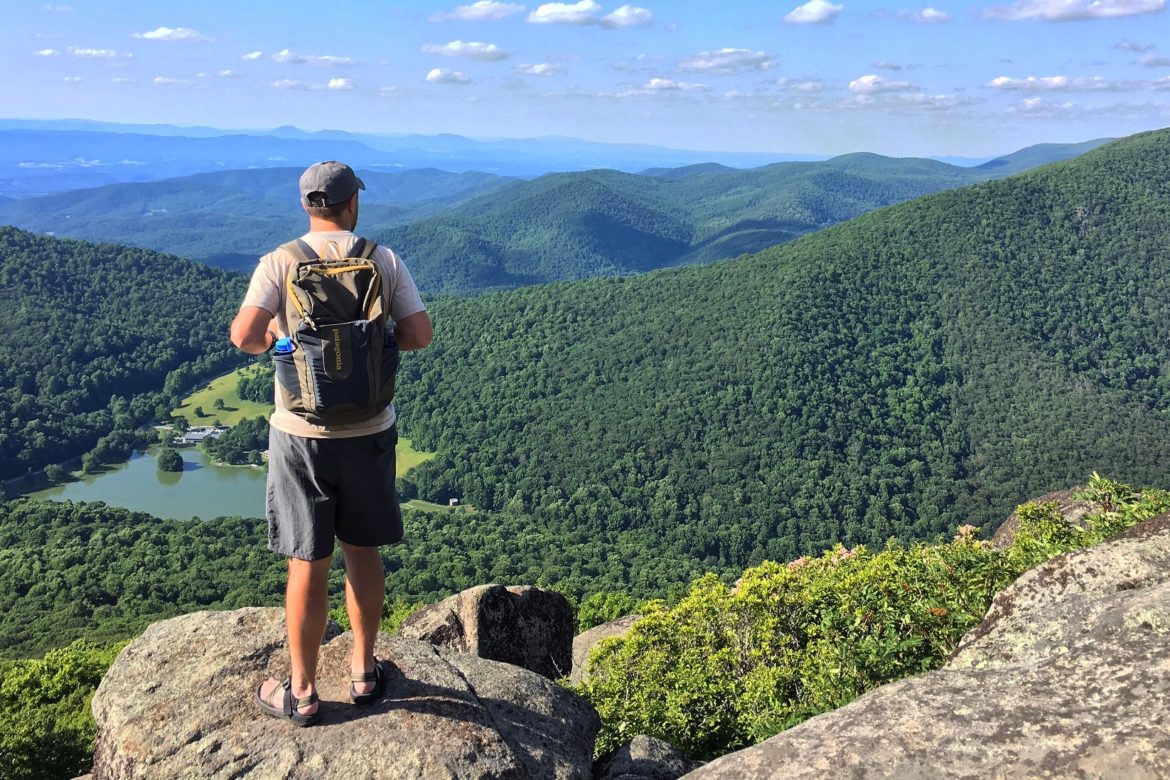Waiting on the Lord
What if we stopped thinking that God leaves prayers unanswered, but instead answers every prayer according to His will?
Stepping out in faith
I’m the kind of person that doesn’t like uncertainty. Really, who does? But I mean I really don’t like uncertainty, like down to the point where if I think someone is even the slightest bit mad at me, I’ll stew over it until it gets resolved.
I don’t like not knowing what’s going on or what’s about to come. There are times when I’m content to go with the flow, but when it comes to life’s major decisions or events, I don’t like being uncertain. This runs counter to what God calls us to do as Christians.
For David Rinehart: my pastor, my friend
Every time I saw David Rinehart, it didn’t matter where it was or when it was, that’s what he’d call me. If I remember right, it was one of many nicknames given to me by my youth group friends in high school that was a spinoff of my name. Most of the time, I get annoyed when people mistake my name, because getting called “Clay” or “Clay Colebourn” happens more than you know. With David, it was a term of endearment. Something was wrong if he didn’t greet me with a “‘Sup, Colebourn,” or some other variation.
On 2015, Stephan Jenkins and a summer that changed my life
There’s a line in the Third Eye Blind song “Graduate” in which lead singer Stephan Jenkins asks, “Do you live the days you go through?”
I’d always sung along with it but, like so many people do with catchy songs, never really stopped to pay attention to what I was actually saying, or put it in context with the rest of the song. One day I decided to search the Internet for what Jenkins was actually writing about. The reality, though, was that it didn’t really matter.
Cole Claybourn: Long-form Reporting Stories
Below are links to long-form, narrative-driven stories that I have reported through the years. While some of it dates back 10 years to my college years, these stories displays the level of reporting I am capable of doing and the quality of work I am capable of producing. I also have included more recent examples that are both news and narrative driven. I tend to write anecdotally, so much of my reporting is framed that way, but I am more than comfortable reporting in a firm, nuts-and-bolts voice as well.
1. Buzz Bissinger wants to ban college football. Is he right?
This story is the product of my capstone journalism class during my final semester at Western Kentucky University. Nearly 6,000 words long, this story examines the role of money in college athletics and does so through the lens of an argument from Friday Night Lights author Buzz Bissinger: ban college football. Though this reporting is 10 years old, this truly displays some of my best abilities of reporting, data mining, interviewing, and narrative writing.
2. Concussions place high school football under microscope
This story was the result of a two-month investigation into concussions among high school athletes. I still keep the folder that contains all the reporting and paperwork I uncovered from this project, and it’s several inches thick. Inspired by a lawsuit in Illinois, this story examines every aspect of how concussions have affected high school athletics and the dangers that come with various sports. For this story, I spoke with athletes, coaches, administrators, and lawyers to fill out the sourcing for this. I even went to a local high school to take the concussion test that athletes are required to take, simply so I could best explain how it is administered. This story was published in the Evansville (Ind.) Courier & Press on Super Bowl Sunday in 2014.
3. ‘Fill The Stadium’ Initiative Was Launched For Such A Time As This
I write part-time for Sports Spectrum, an outlet covering faith and sports. Most magazine articles are at least 2,000 words, as this one was. This story centered around Compassion International’s efforts to provide care for 70,000+ children — enough to fill an entire football stadium. The COVID-19 pandemic caused many events to be canceled that would typically match people with children in need, so those in the sports world took up the initiative to fill the gap.
4. Western Kentucky Volleyball Coach Travis Hudson Is Purpose Driven
This was another article I wrote for the Sports Spectrum Magazine. Travis Hudson is a legendary volleyball coach at Western Kentucky University. This is not necessarily a hard news type of story, but this story showcases depth of reporting, thorough sourcing, and narrative storytelling.
5. Documents shed light on Fant, Price’s summer employment issues
This story was an award-winning breaking news story that was the result of exclusive information uncovered by a Freedom of Information Act open records request that I obtained solely. It involved two star freshmen basketball players who were caught up in a large scam perpetrated by a local businessman. The two athletes were one of hundreds of victims at this particular workplace, and the perpetrator is in prison to this day more than 10 years later.
Potential story ideas:
–Severe issues with NCAA Tournament courts
Throughout the month of March all the way through the NCAA men’s basketball championship, I watched as time and again, athletes kept slipping on the court. It is common for basketball courts to be covered in sweat throughout the game, but there seemed to be way more issues this year, particularly concerning key players. Key possessions were impacted and results were impacted. Perhaps none was more pivotal than North Carolina center Armando Bacot slipping at the end of the game, presumably due to conditions on the court. Here’s another look. I would take a deep dive into the quality of the construction of these courts and find out what the cause was for why there were so many issues with players slipping and, in this case, parts of the court moving. It resulted in injuries and impacted final results.
–Deep dive into styles and trends and how they are cyclical
As a high school teacher, and general observer of people, I have noticed how common it is for trends to be cyclical but, perhaps even more telling, how much generations tend to copy each other in terms of style. Walking up and down the beach in Florida while on vacation, it was tough to tell many teenagers apart as so many were dressed alike and sported similar hairstyles. What are the psychological reasons for this? What role does peer pressure and the desire to fit in or not stand out play in this? How do people showcase originality and uniqueness while still trying to fit in? I would talk with people from the psychology world to those in the fashion world for this story.
–Pat McAfee, the most interesting man in the world?
Pat McAfee has made millions of dollars in nearly 10 different professions. The former NFL punter turned comedian, turned Barstool Sports personality, turned radio host, turned WWE star is perhaps the most interesting man in the world. When he has wanted to do something, he’s done it. When he’s decided he’s done with that pursuit, he’s quit it and moved on to his next pursuit. In many ways he embodies the true American dream — simply doing what you want when you want to do it. How has he made this happen? This would be an in-depth profile on Pat, talking with all sorts of people in his life, from high school and college coaches to friends, family, and people he’s worked with along the way.
–Barstool Sports brand’s effect on teenagers
As a high school teacher, I have noticed a number of “Barstool-branded” accounts popping up at high schools, seemingly following the lead of college-branded vice accounts. While the college accounts are affiliated with Barstool, these high school accounts are not. They are just teenagers operating a social media account with the intent of mimicking the brand, style, and tone of Barstool and its mega personalities. This has proven problematic, as many of these accounts exist solely to bully and shame people — two things that many have come to associate with the Barstool brand itself. What responsibility does Barstool have with these accounts, if any? Is this something they encourage or recognize their role in? While this story would highlight the problematic areas on Barstool, it would also be a larger look at bullying and the role social media plays in it, particularly at the teenage level.
–How the wrong tech products can affect your physical health
Oftentimes when we select a phone case, it’s mostly for looks. We want functionality, sure, but we generally lean toward something that also “looks” good. Some products, while they might look great, can actually cause severe physical issues. Take for instance LoopyCases, a popular phone case with a rubber loop on the back to place your hand. If held incorrectly, this can cause severe pain in your hand and wrist area and potentially lead to more serious, long-term issues. This story would look at a wide range of popular tech items that could inherently lead to pain or do so when used incorrectly.







